
Los Angeles ADU Development Guide: SB-1211 Opportunities in LA County
Complete guide to developing SB-1211 ADUs in Los Angeles County. Covers permitting, zoning, costs, a...
Read MoreTransform your California multifamily property with SB-1211 legislation. Our expert team handles everything from architectural planning to construction completion.
From cozy cottages to modern minimalist designs, see the quality and craftsmanship that sets our SB-1211 ADU projects apart.
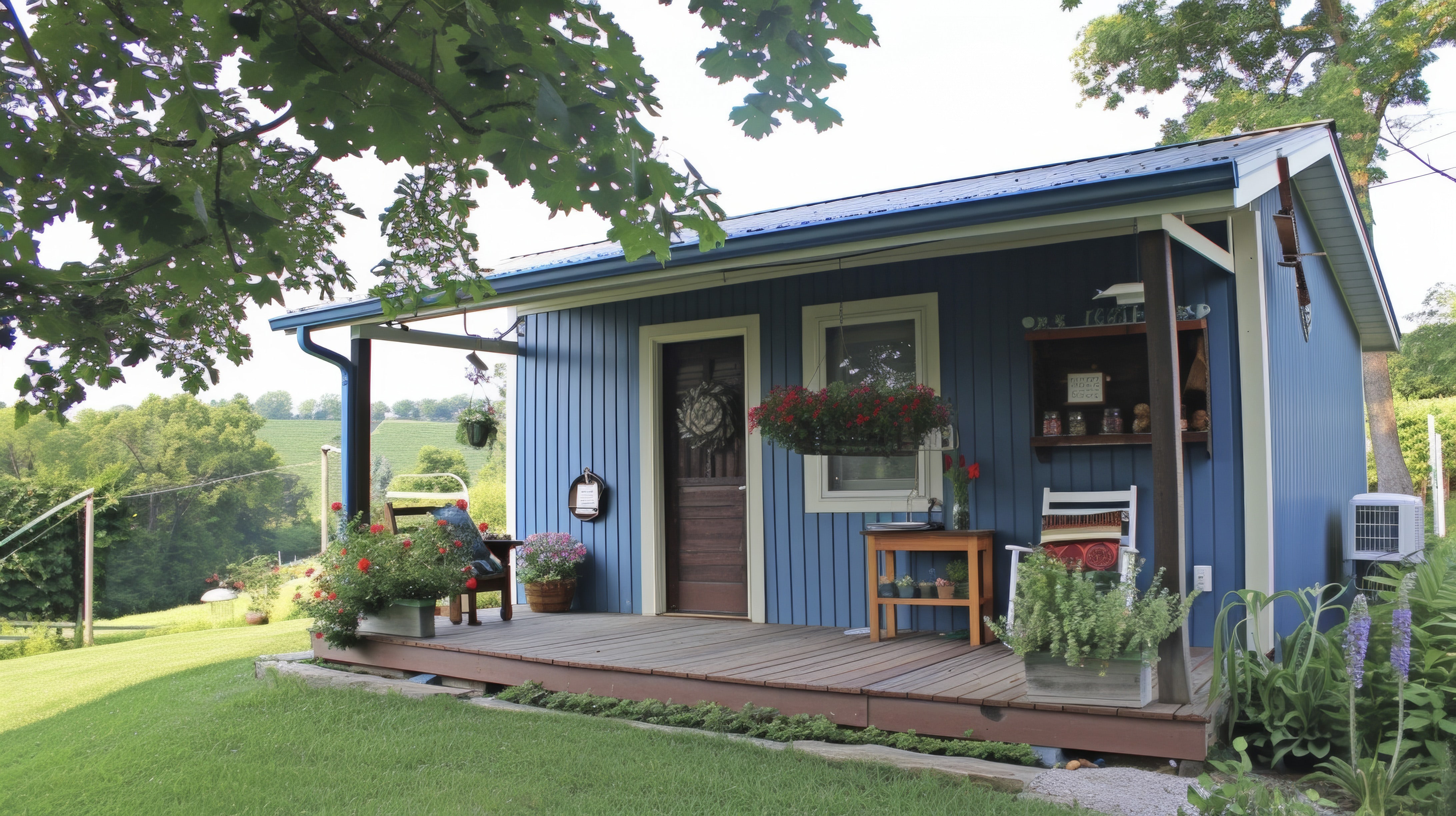
Complete ADU with covered porch, professional landscaping, and charming cottage aesthetic
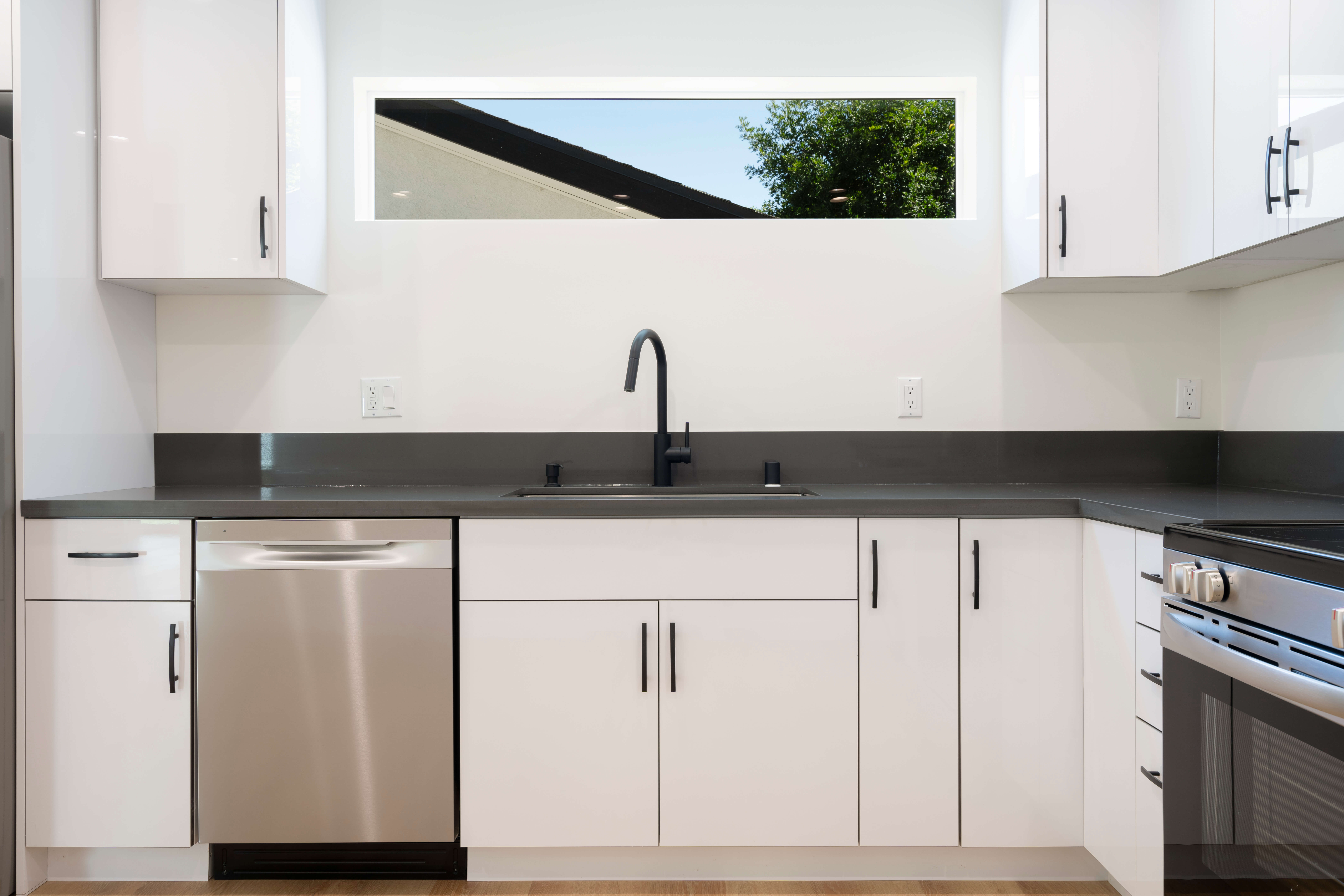
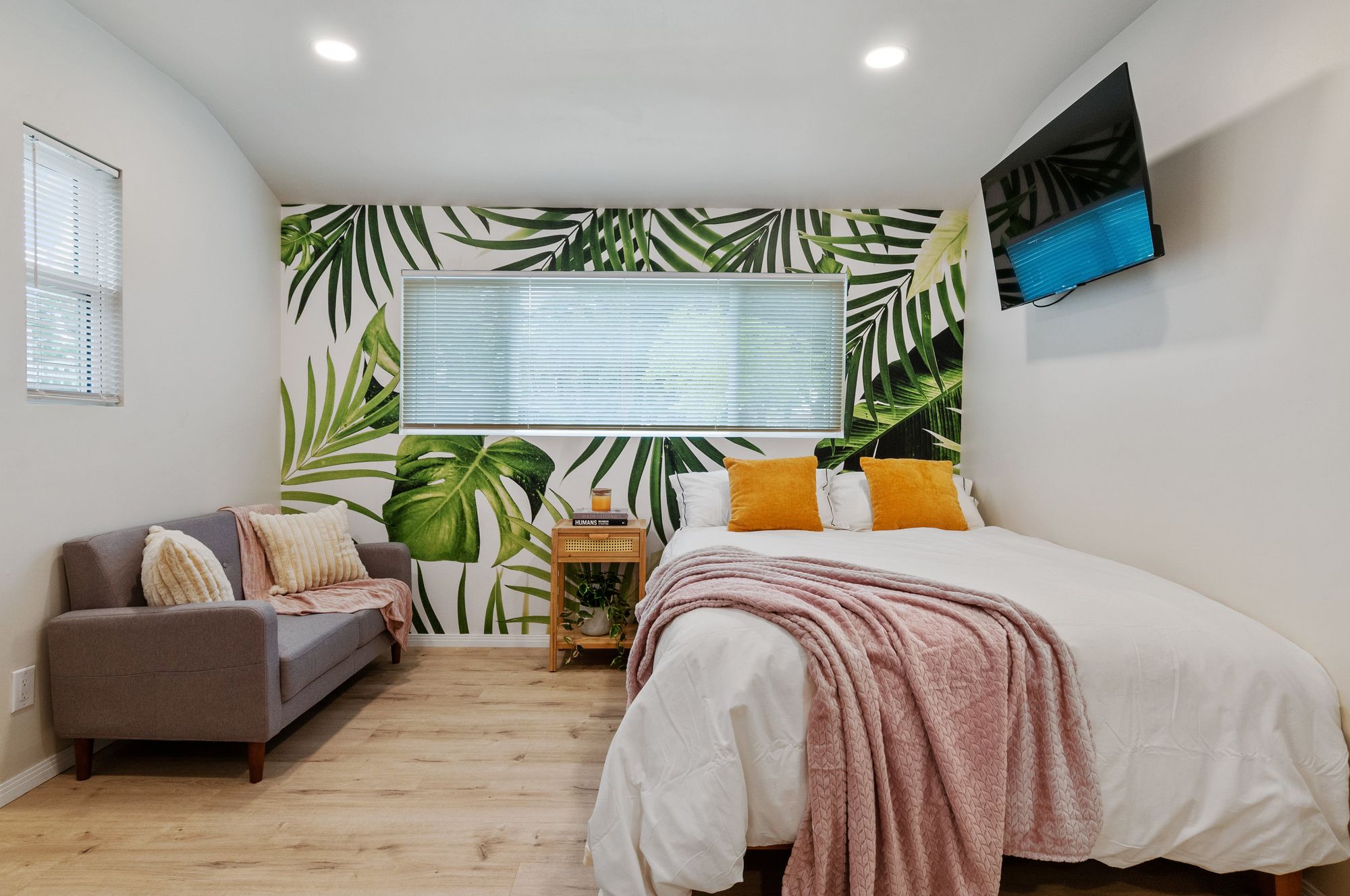
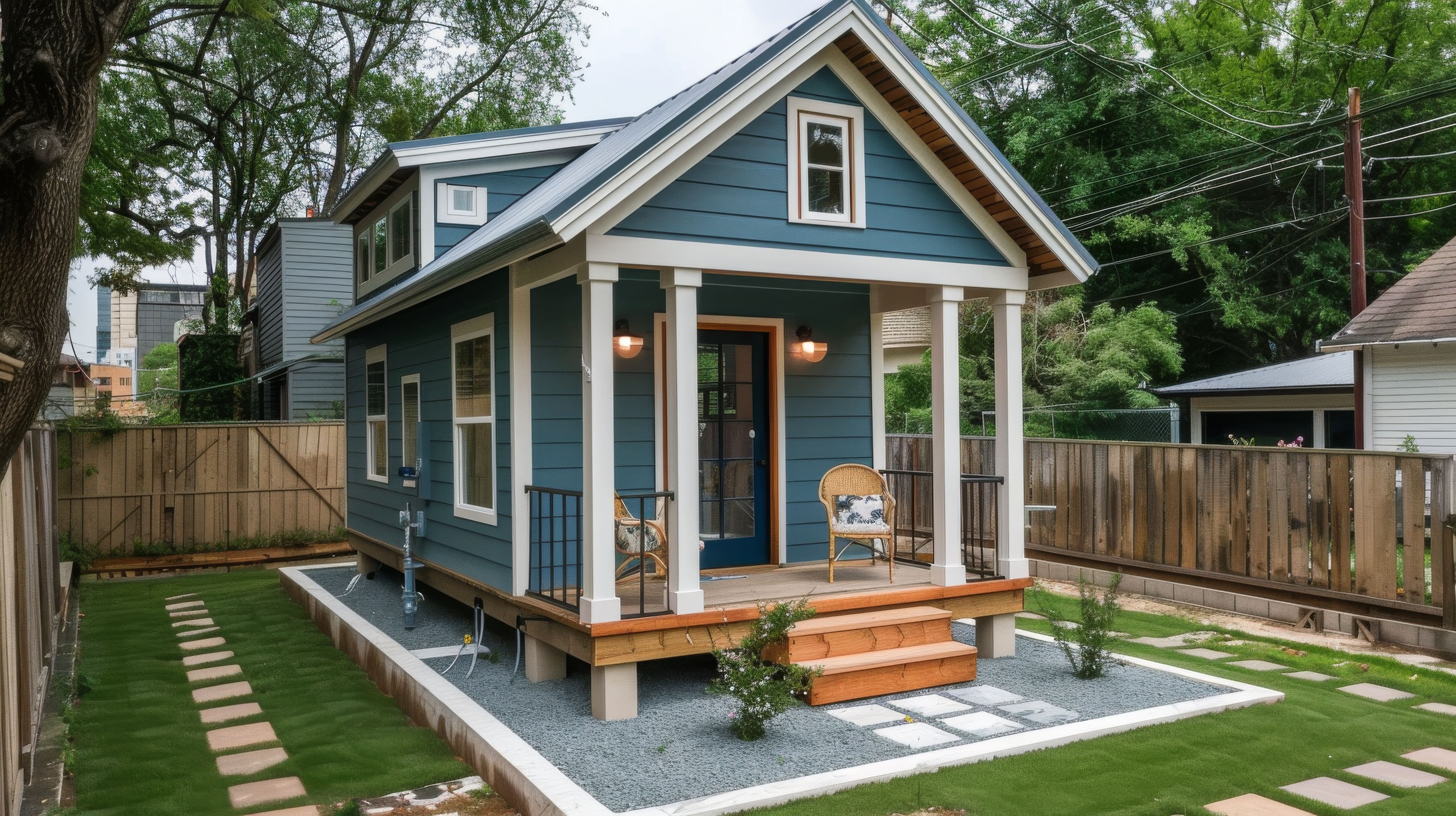
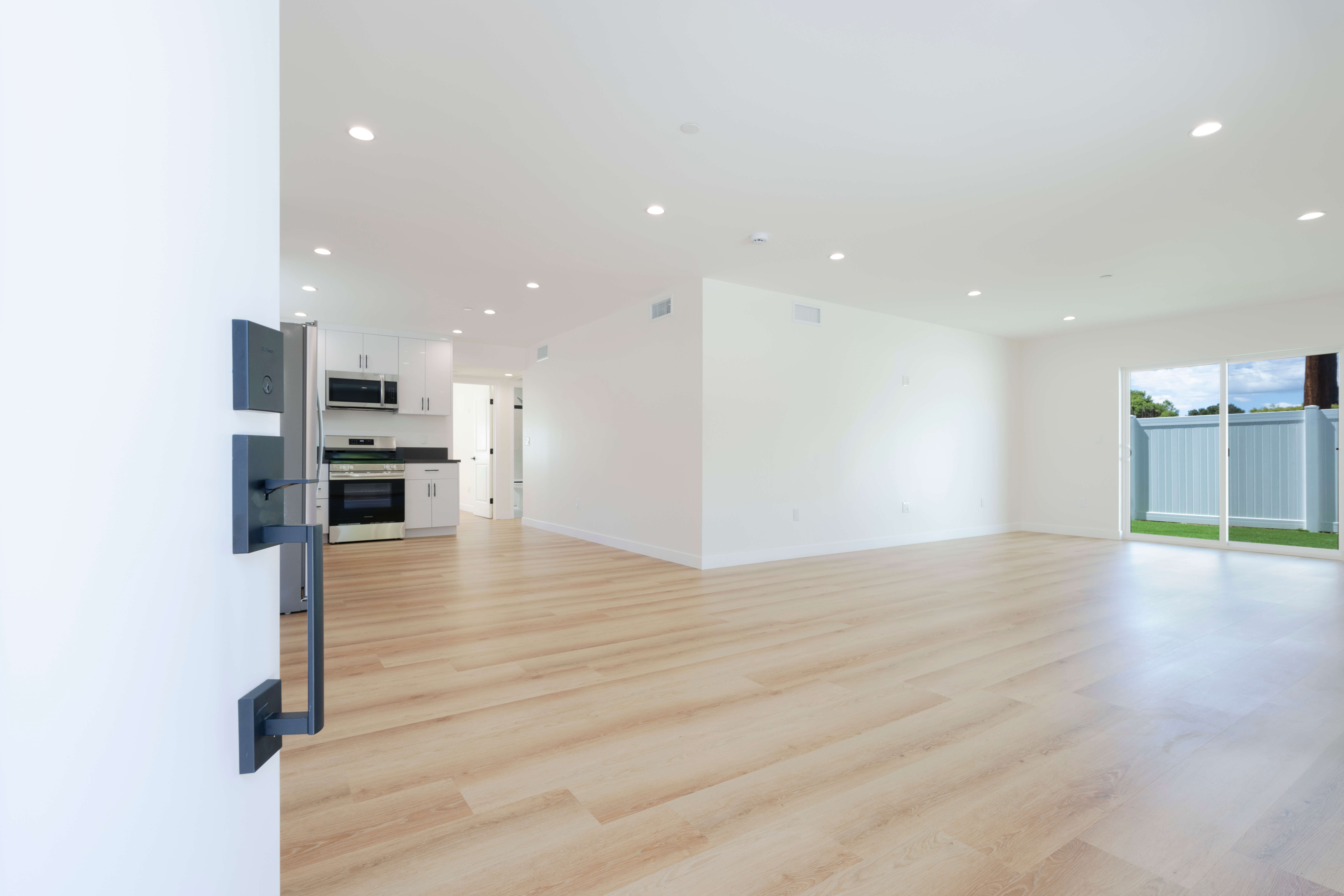
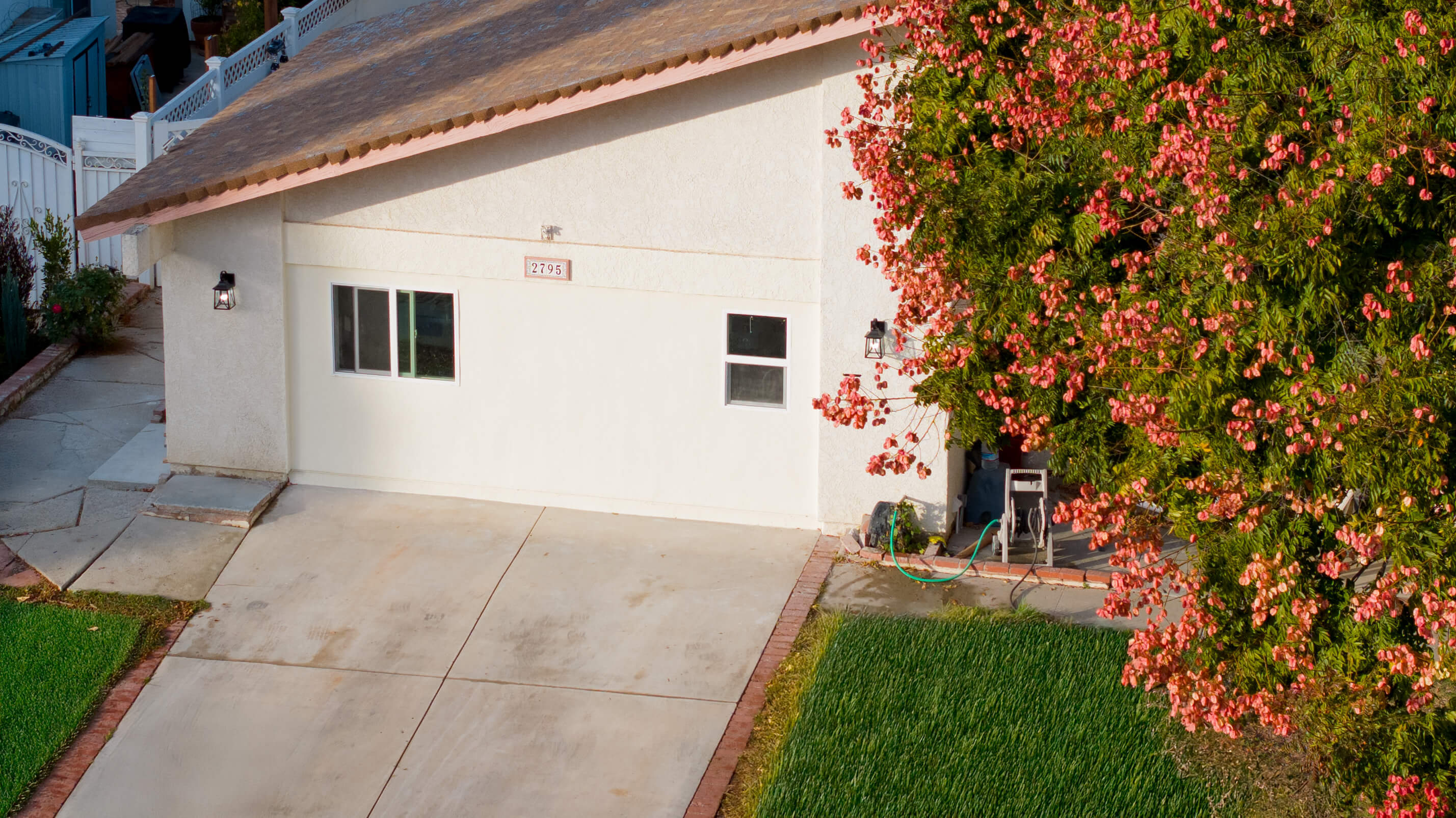
Every ADU project is custom-designed to maximize your property's potential while maintaining the highest standards of quality and craftsmanship.
California's SB-1211 legislation, effective September 2024, allows up to 8 detached ADUs on multifamily lots, dramatically increasing from the previous limit of 2 units. This represents a massive opportunity for property owners.
Increase from 2 to 8 detached ADUs per multifamily lot under the new legislation.
Removes requirements to replace surface parking spaces when building ADUs.
Streamlined approval process with automatic permits for compliant projects.
Maximize rental income and property value with additional dwelling units.
From initial planning to final construction, we provide comprehensive services to help you maximize your property's potential under California's new SB-1211 legislation.
Expert architectural design services for SB-1211 compliant ADUs with custom designs and code compliance.
Comprehensive structural and civil engineering for safe, compliant ADU construction meeting all building codes.
Navigate the complex permitting process with our expertise, ensuring ministerial approval under SB-1211.
Complete construction services from foundation to finish, delivering quality ADU construction on time and budget.
SB-1211 presents unprecedented opportunities for multifamily property owners to increase rental income, property value, and housing density efficiently.
ADUs typically increase property value by $100,000-$300,000, providing substantial equity growth.
Generate $1,500-$4,000+ monthly rental income per ADU, creating substantial passive income streams.
Create housing for family members, guests, or long-term tenants while maintaining property control.
Increase housing density without major infrastructure changes, supporting California's sustainability goals.
SB-1211's ministerial approval process reduces permitting time and bureaucratic delays.
State-mandated ADU rights protect your investment from changing local ordinances.
Get expert guidance on your SB-1211 ADU project. Our team of architects, engineers, and contractors will help you navigate every step of the process.
From initial planning to final construction, we provide comprehensive services to help you maximize your property's potential under California's new SB-1211 legislation.
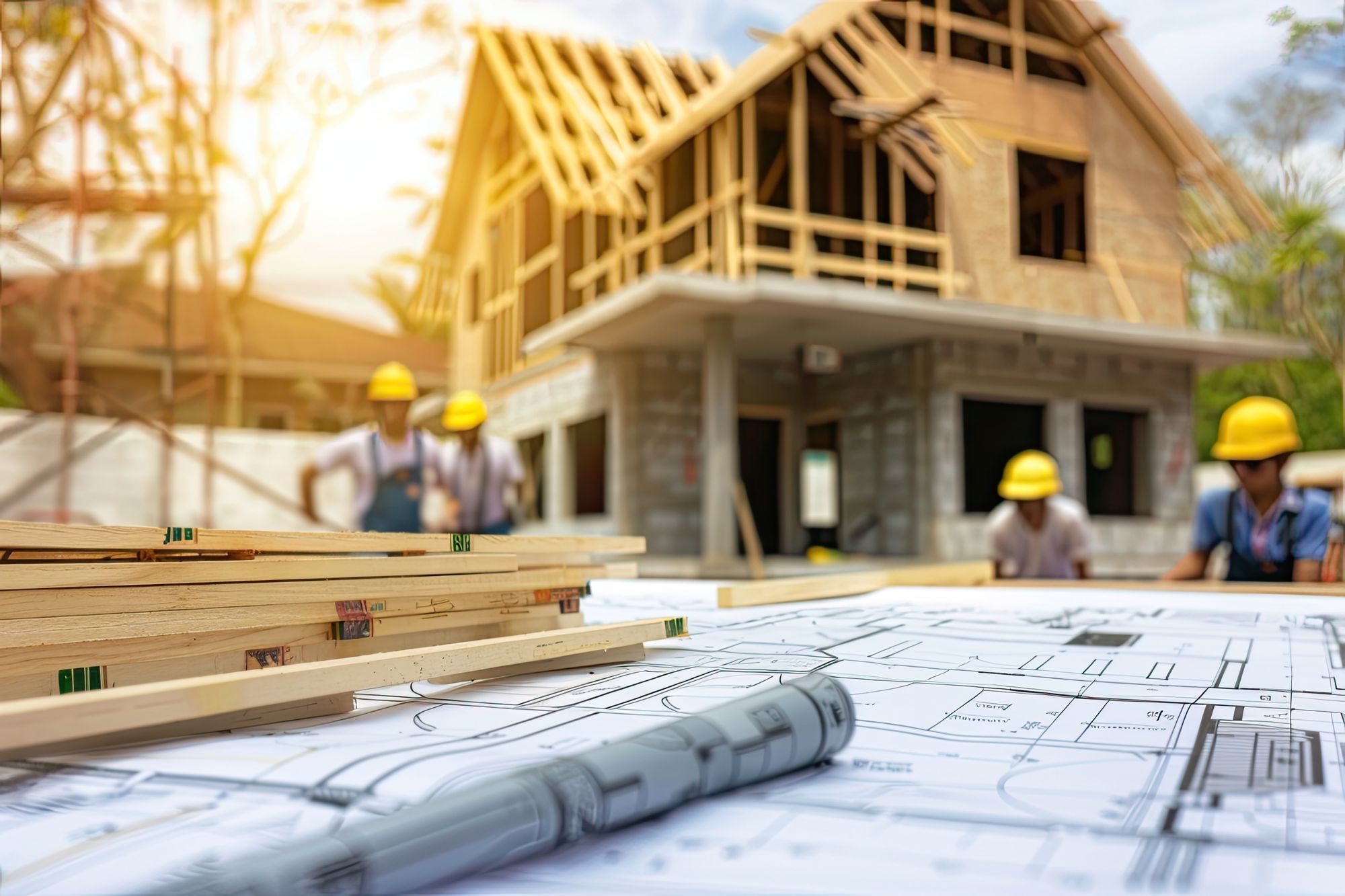
Our licensed architects specialize in SB-1211 compliant ADU design, creating efficient, attractive spaces that maximize your property's potential while meeting all regulatory requirements.
Comprehensive property evaluation and feasibility studies
Tailored architectural solutions for your specific needs
Ensuring all designs meet SB-1211 and local requirements
Detailed renderings to visualize your project
Our designs maximize the new opportunities under SB-1211, helping you add up to 8 detached ADUs while optimizing space utilization and rental income potential.
Our licensed structural and civil engineers ensure your ADU project is safe, compliant, and built to last. We handle all engineering aspects from foundation design to utility connections.
Complete structural engineering calculations and design
Optimized foundation systems for site conditions
Comprehensive utility connection strategies
California seismic code compliance and analysis
All engineering work meets or exceeds California Building Code requirements, ensuring your ADU project is safe, durable, and passes all inspections.
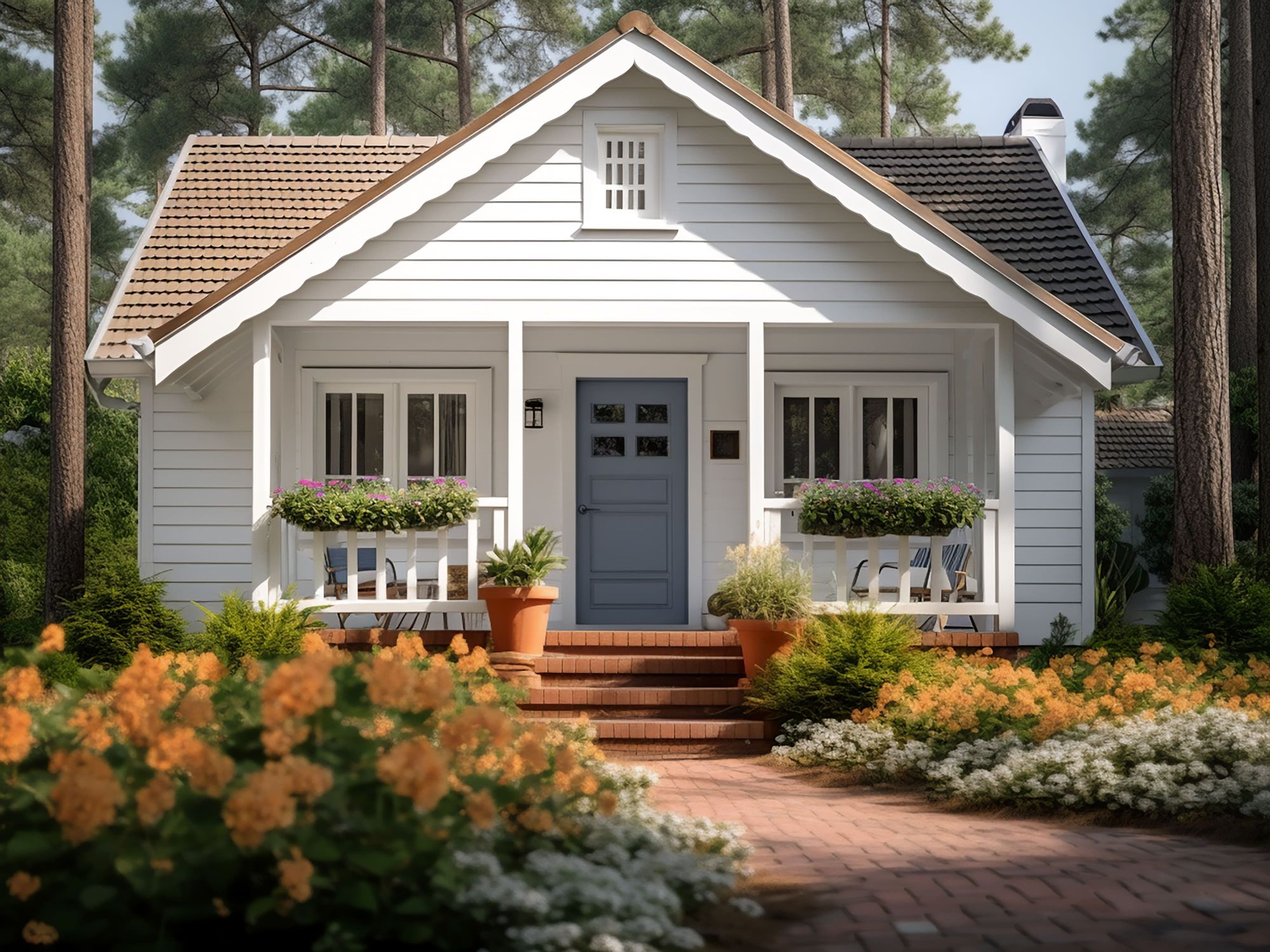

Navigate the complex permitting process with confidence. Our permit specialists handle all applications, coordinate with jurisdictions, and ensure ministerial approval under SB-1211.
Complete permit package preparation and submission
Direct liaison with planning and building departments
Handling revisions and addressing review comments
Scheduling and managing all required inspections
Jurisdictional requirements analysis and strategy development
Complete permit packages with all required documentation
Application submission and progress monitoring
Final permit approval and construction authorization
Ministerial approval process ensures faster permitting for compliant projects, typically reducing approval time to 60 days or less.
Complete construction services from foundation to finish. Our licensed contractors deliver quality ADU construction on time and within budget.
Complete project coordination and timeline management
Professional craftsmanship with quality materials
All electrical, plumbing, and mechanical work by licensed professionals
Turnkey delivery with final inspections and occupancy permits
All construction work comes with comprehensive warranties and our commitment to quality craftsmanship and customer satisfaction.

Complete answers to all your questions about SB-1211, ADU development, permitting, construction, and legal requirements for California properties.
10 questions in this category
SB-1211 is California legislation effective January 1, 2024, that allows up to 8 detached ADUs on multifamily lots, increasing from the previous limit of 2. This significantly expands opportunities for property owners to add rental units and increase property value.
SB-1211 applies to multifamily residential properties, including apartment buildings, condominiums, and other multi-unit developments. The law specifically targets existing multifamily lots to increase housing density.
You can build up to 8 detached ADUs on qualifying multifamily lots. This is a substantial increase from the previous limit of 2 ADUs, providing significant development potential.
No! One of the key benefits of SB-1211 is that it removes the requirement to replace surface parking spaces, garages, carports, or covered parking structures that are demolished or converted for ADU construction.
ADUs can be up to 800 square feet for a studio or one-bedroom unit, and up to 1,000 square feet for a unit with two or more bedrooms. These size limits ensure reasonable unit sizes while maximizing development potential.
Yes, ADUs must maintain a minimum 4-foot setback from side and rear property lines. However, local jurisdictions may have additional setback requirements that must be considered during design.
Cities can impose objective design standards and development standards, but they cannot make the approval process discretionary or add subjective requirements that would effectively prohibit ADU development.
SB-1211 provides state-level protections that limit local restrictions on ADU development. While cities can maintain some design standards, they cannot impose requirements that make ADU development infeasible.
Cities must approve or deny ADU applications within 60 days of receiving a complete application. This streamlined timeline helps reduce development delays and uncertainty.
HOAs cannot prohibit ADU construction that complies with SB-1211 requirements. However, they may impose reasonable design guidelines that don't conflict with state law.
10 questions in this category
You'll need building permits, electrical permits, plumbing permits, and potentially mechanical permits. Some jurisdictions may also require separate permits for site work, grading, or utility connections.
The permitting process typically takes 2-4 months, depending on the complexity of your project and local jurisdiction efficiency. SB-1211 requires cities to process applications within 60 days.
Required documents typically include architectural plans, structural engineering drawings, site plans, utility plans, energy compliance calculations (Title 24), and completed permit application forms.
While not always legally required, working with a licensed architect ensures your design meets all building codes, zoning requirements, and design standards. Many jurisdictions require architect-stamped plans for ADUs.
Typical inspections include foundation, framing, electrical rough-in, plumbing rough-in, insulation, drywall, and final inspection. The specific inspection schedule varies by jurisdiction and project scope.
Some jurisdictions offer pre-approved ADU plans that can expedite the permitting process. However, site-specific considerations often require plan modifications, so custom design is frequently necessary.
If denied, the city must provide specific reasons for the denial. You can address the issues and resubmit, or appeal the decision if you believe the denial violates SB-1211 requirements.
Yes, detached ADUs typically require more extensive permits than attached ADUs or garage conversions. The complexity of permits depends on new construction versus conversion projects.
Yes, separate permits are typically required for water, sewer, gas, and electrical connections. These utility permits are often processed concurrently with building permits.
Fire departments review plans for fire safety compliance, including emergency egress, fire separation requirements, and sometimes fire sprinkler systems depending on local requirements.
10 questions in this category
Key considerations include maximizing square footage within size limits, ensuring proper setbacks, creating efficient layouts, planning utility connections, and designing for parking replacement flexibility.
Consider setback requirements, utility access, privacy for both ADU and main building residents, parking needs, landscaping preservation, and compliance with any design guidelines.
Popular designs include studio apartments (400-600 sq ft), one-bedroom units (600-800 sq ft), and small two-bedroom units (800-1000 sq ft). Open floor plans maximize the feeling of space.
Use strategic window placement, landscaping, fencing, separate entrances, and thoughtful orientation. Consider sight lines from both buildings and outdoor spaces when designing.
While not always required, consider universal design principles like wide doorways, accessible bathrooms, ramp access, and single-floor living to maximize rental appeal and future-proof your investment.
Incorporate built-in storage, utilize vertical space, design multi-functional furniture areas, include closet space in bedrooms, and consider outdoor storage solutions.
Choose durable, low-maintenance materials that complement the main residence. Popular options include fiber cement siding, stucco, wood siding, and metal roofing, depending on local climate and design guidelines.
Focus on proper insulation, energy-efficient windows, LED lighting, efficient HVAC systems, proper orientation for natural light, and compliance with Title 24 energy requirements.
Include full-size appliances when possible, maximize counter space, provide adequate storage, ensure proper ventilation, and design efficient work triangles even in compact spaces.
Plan for electrical service, water supply, sewer connections, gas lines (if needed), internet/cable, and potentially separate utility meters. Consider trenching requirements and connection costs early in design.
10 questions in this category
Construction costs typically range from $200-400 per square foot, with total costs between $150,000-400,000 depending on size, finishes, site conditions, and local construction costs.
Key cost factors include size, finishes quality, site conditions, utility connection requirements, permit fees, foundation type, and local labor costs. Site preparation can significantly impact total costs.
Construction typically takes 4-8 months depending on size, complexity, weather, and contractor availability. Simple ADUs may be completed in 3-4 months, while complex projects can take 6-12 months.
Most homeowners benefit from hiring a licensed general contractor experienced with ADUs. They handle permits, coordinate trades, ensure code compliance, and manage the construction timeline.
Permit fees, design costs, engineering, and other soft costs typically range from $15,000-40,000, representing about 10-20% of total project costs depending on project complexity and jurisdiction.
Challenging site conditions like steep slopes, poor soil, existing utilities, or limited access can significantly increase costs. Site evaluation early in planning helps avoid cost surprises.
Utility connections typically cost $5,000-20,000 depending on distance to existing services, whether new meters are required, and local utility company fees and requirements.
Cost reduction strategies include choosing standard sizes, simple designs, cost-effective finishes, efficient layouts, pre-fabricated components, and getting multiple contractor bids.
Financing options include home equity loans, construction loans, cash-out refinancing, personal loans, and some specialized ADU financing programs. Compare rates and terms carefully.
Not necessarily. Consider your budget, rental market demand, lot constraints, and return on investment. Sometimes a well-designed smaller unit provides better value than maximizing square footage.
10 questions in this category
Short-term rental regulations vary by jurisdiction. Many cities restrict or prohibit short-term rentals in ADUs. Check local ordinances and HOA rules before planning short-term rental use.
Separate meters are not required by SB-1211, but many property owners choose separate meters for easier rent collection and utility management. Some jurisdictions may require separate meters.
ADUs must be rented for terms of 30 days or longer in most jurisdictions. Some cities may have additional rental restrictions or rent control ordinances that apply to ADUs.
Generally no. ADUs are typically considered accessory to the main dwelling and cannot be sold separately. However, some jurisdictions are exploring condominium conversion options for ADUs.
You may need to update your homeowner's insurance to cover the ADU structure and potential rental liability. Consider landlord insurance if renting the unit to tenants.
Some properties may have deed restrictions or CC&Rs that limit ADU development. Review your property documents and consult with an attorney if restrictions exist.
If your city hasn't updated their ordinance, SB-1211 state law still applies. You can proceed under state law requirements, but may need legal assistance if the city resists.
SB-1211 eliminates parking replacement requirements, but some jurisdictions may still require parking for new ADUs. Check local requirements and consider tenant needs when planning.
ADU tenants have the same rights as other residential tenants, including habitability guarantees, proper notice requirements, security deposit protections, and eviction protections.
Cities can charge impact fees, but SB-1211 and other state laws limit these fees. Many jurisdictions waive or reduce impact fees for ADUs to encourage development.
10 questions in this category
ADUs typically provide 4-8% annual returns through rental income, plus property value appreciation. Actual returns depend on construction costs, rental rates, and local market conditions.
Rental income varies by location, size, and amenities. Studio ADUs may rent for $1,200-2,500/month, while larger units can command $1,800-4,000/month depending on the local market.
Budget for property taxes, insurance, maintenance, utilities (if not separate), property management, vacancy periods, and occasional repairs or updates.
Adding an ADU will likely increase your property's assessed value and annual property taxes. The increase depends on the ADU's value and your local tax rates.
Potential tax benefits include rental property deductions, depreciation, interest deductions on construction loans, and possible tax credits for energy-efficient features.
Self-management saves money but requires time and landlord knowledge. Property managers typically charge 8-12% of rental income but handle tenant screening, maintenance, and legal compliance.
Research comparable rentals in your area, consider ADU size and amenities, factor in utilities included, and adjust for market conditions. Consider hiring an appraiser for market analysis.
Home equity lines of credit often offer competitive rates and flexibility. Compare terms for home equity loans, construction loans, and cash-out refinancing based on your situation.
ADUs typically add significant value to properties, often 20-30% or more depending on local markets. The added rental income potential makes properties more attractive to buyers.
Most ADU investments break even in 8-15 years through rental income, not including property appreciation. Actual timelines depend on construction costs, rental rates, and financing terms.
Total FAQs
Categories
Max ADUs per Lot
SB-1211 Effective
Stay informed with the latest insights, guides, and local expertise for SB-1211 ADU development across California.

Complete guide to developing SB-1211 ADUs in Los Angeles County. Covers permitting, zoning, costs, a...
Read More
Explore SB-1211 ADU development opportunities in San Diego County. Market analysis, permitting guide...
Read More
Navigate ADU legal requirements for SB-1211 compliance. Zoning laws, building codes, and regulatory ...
Read More
Comprehensive guide to ADU financing for SB-1211 projects. Explore loans, grants, and creative fundi...
Read More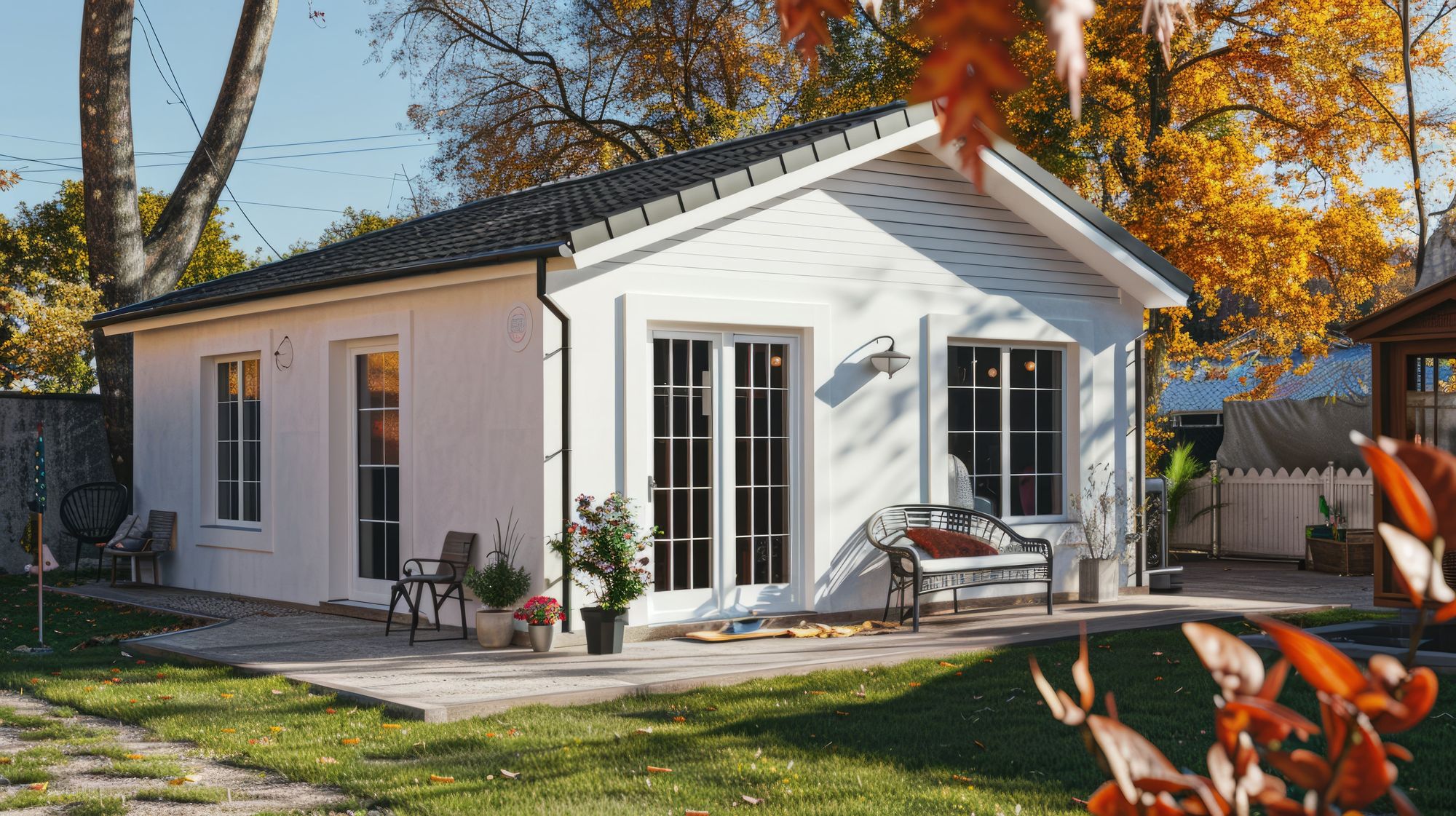
Discover SB-1211 ADU development opportunities in Sacramento. Local market analysis, permitting proc...
Read More
Analyze rental income potential and ROI for SB-1211 ADU investments. Market rates, tenant demographi...
Read MoreSB-1211.com is your trusted partner for navigating California's groundbreaking SB-1211 legislation, which allows up to 8 detached ADUs on multifamily properties. Our team of licensed architects, engineers, and contractors specializes in maximizing property potential while ensuring full compliance.
With the passage of SB-1211 in September 2024, California property owners have unprecedented opportunities to increase rental income, property value, and housing density. We're here to help you capitalize on these opportunities with expert guidance and professional execution.
Part of California's leading ADU development platform, bringing expertise and proven processes to SB-1211 projects statewide.
Licensed architects, engineers, and contractors with specialized expertise in California ADU development and SB-1211 compliance.

Expert architectural design for SB-1211 compliant ADUs, maximizing space efficiency and aesthetic appeal while meeting all regulatory requirements.

Licensed structural and civil engineers ensuring safe, compliant construction that meets California Building Code requirements and seismic standards.

Licensed general contractors with extensive ADU construction experience, delivering quality projects on time and within budget.
Years Combined Experience
ADUs Completed
Permit Approval Rate
SB-1211 Compliance
We combine deep expertise in California ADU legislation with proven development processes to deliver successful SB-1211 projects throughout the state.
Deep expertise in the new legislation, helping you maximize the 8-ADU opportunity while ensuring compliance.
All work performed by California licensed architects, engineers, and contractors with comprehensive insurance coverage.
Efficient project management from initial consultation through final occupancy certificate.
Comprehensive insurance, bonding, and warranty protection for your investment.
ADU Projects
Approval Rate
Day Process
Max ADUs
Providing expert SB-1211 ADU development services across major California cities and metropolitan areas. Each location offers unique opportunities for multifamily ADU development.
Prime SB-1211 opportunities in America's second-largest city. High rental demand, streamlined permitting, and significant housing shortage create ideal conditions for ADU development.
Maximum rental returns in the nation's tech capital. SB-1211 provides unprecedented opportunities to add density in this high-value, supply-constrained market.
Strong rental market with year-round appeal. Coastal proximity and growing biotech sector drive consistent tenant demand for quality ADU housing.
California's capital offers cost-effective development with strong government worker demand. Lower construction costs and streamlined processes maximize ROI.
Emerging market with Bay Area proximity benefits. Lower entry costs with strong appreciation potential as tech workers seek affordable alternatives.
High-yield investment opportunity in growing Central Valley market. Agricultural economy stability combined with affordable development costs.
Don't see your city listed? We serve all California municipalities with SB-1211 ADU opportunities.
View All Service Areas